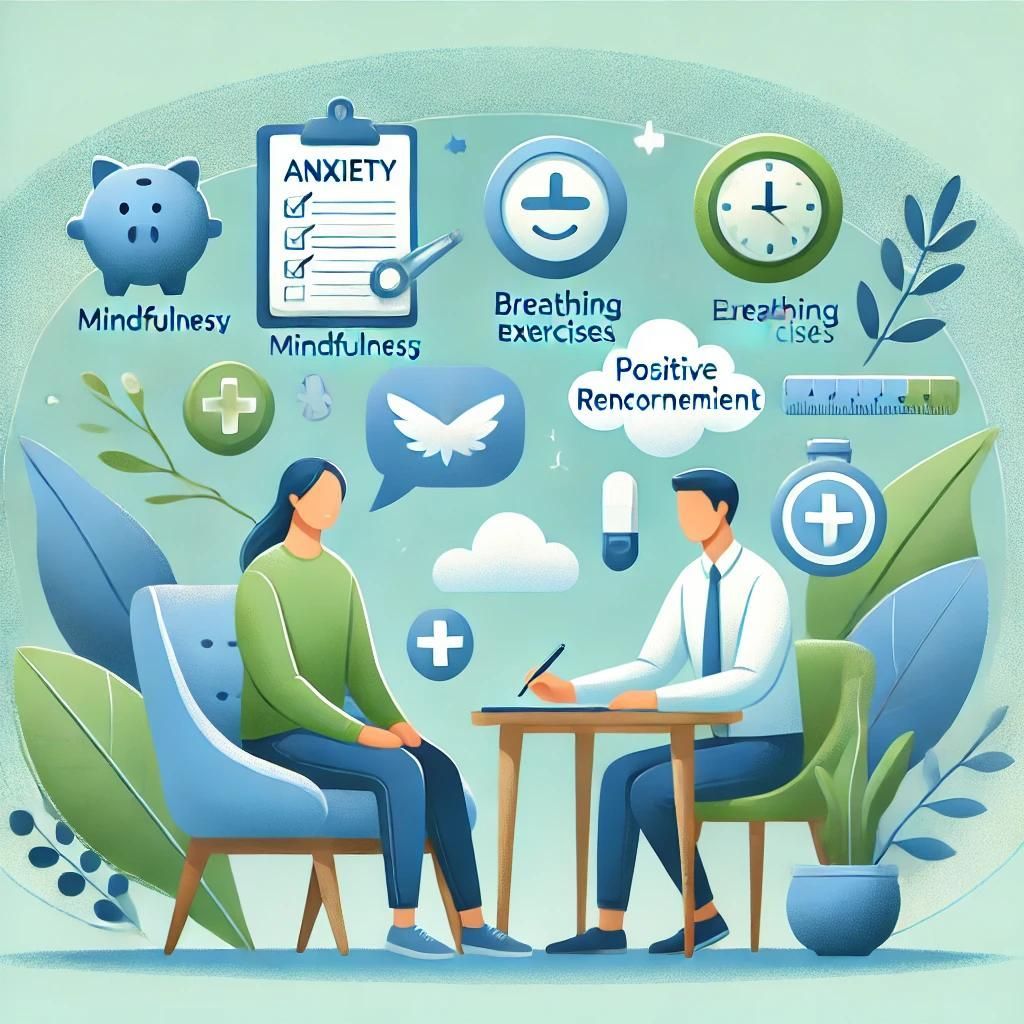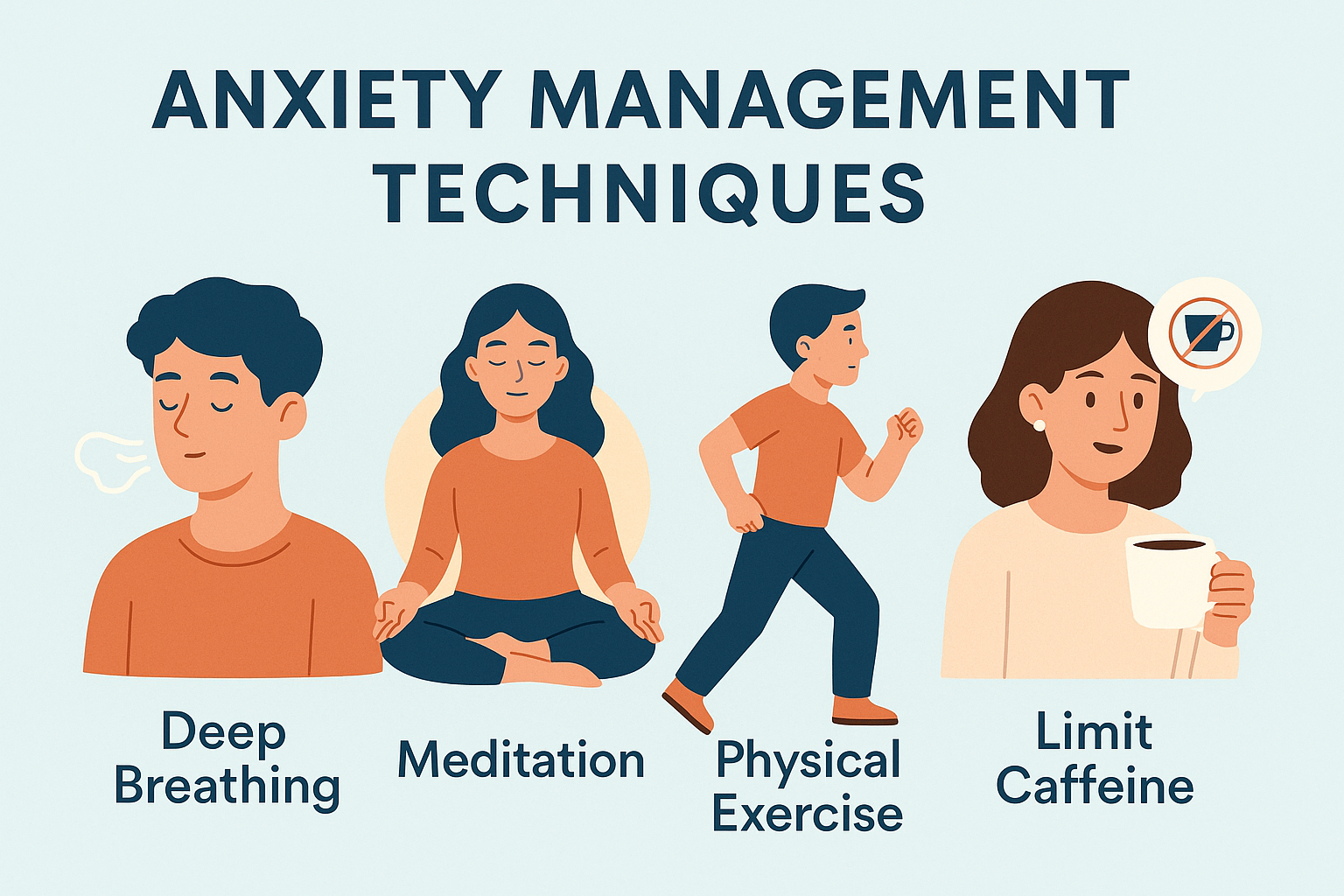
Anxiety Therapy for a Better Tomorrow | Beckloff Behavioral Center
Anxiety can feel like a weighty cloud looming overhead, making even the easiest tasks feel overwhelming.
That constant buzz of worry, racing thoughts, and restless nights leave you feeling drained and unsure how to break free.
But here’s the good news: you don't have to stay stuck in this cycle. Anxiety therapy tools are here to help you reclaim your peace and take control of those overwhelming emotions.
In this blog article, we'll discuss practical strategies for helping you feel lighter, more grounded, and ready to face each day calmly and confidently.
What are Anxiety Disorders?
Anxiety is more than just occasional worry; it’s a constant, overwhelming presence that can seep into every aspect of daily life.
As part of a group of mental health conditions, anxiety disorders cause intense, persistent feelings of fear and nervousness, making even the simplest tasks feel daunting.
They can manifest in different ways, including generalized anxiety disorder, social anxiety disorder, panic disorder, obsessive-compulsive disorder, and post-traumatic stress disorder.
Some common symptoms of anxiety include:
- Excessive worrying
- Restlessness and irritability
- Muscle tension and aches
- Trouble sleeping
- Panic attacks
- Avoidance of certain situations or activities
- Physical symptoms like sweating, trembling, and heart palpitations
- Gastrointestinal problems
What are Some Effective Therapy Tools to Help You Manage Anxiety and Stress?
Taking control of anxiety requires a comprehensive approach that addresses the underlying issues.
Here are some anxiety therapy tools that can help you manage anxiety and stress:
Cognitive Behavioral Therapy (CBT)
CBT focuses on identifying and changing negative thought patterns and behaviors that contribute to anxiety.
Through CBT, you learn practical skills to challenge and reframe your thoughts, leading to a reduction in anxiety symptoms.
H3: Mindfulness-Based Therapy
Mindfulness-based therapy teaches you to stay present in the moment and observe your thoughts and emotions without judgment.
It can help reduce anxiety by promoting relaxation and self-awareness.
Relaxation Techniques
Deep breathing, progressive muscle relaxation, and guided imagery can help reduce physical symptoms of anxiety, such as muscle tension and rapid heart rate.
These techniques can be practiced on your own or with the guidance of a therapist.
Lifestyle Changes
Taking care of your physical health includes getting enough sleep, eating a balanced diet, and incorporating regular exercise into your routine. It's also important to limit caffeine and alcohol, as these substances can worsen anxiety symptoms.
Exposure Therapy
Exposure therapy involves gradually exposing yourself to feared situations in a controlled and safe environment.
This technique can help reduce avoidance behaviors and build confidence in managing anxiety-provoking situations.
Journaling
Writing down your thoughts and feelings can be a helpful tool in managing anxiety.
It can provide a release for pent-up emotions and help you gain insight into your thought patterns.
Acceptance and Commitment Therapy (ACT)
ACT focuses on accepting difficult thoughts and feelings rather than trying to control or avoid them.
It also involves identifying your values and committing to actions that align with those values, even in the face of anxiety.
Build Resilience With Professional Anxiety Therapy in Dallas, TX
Anxiety and stress can feel overwhelming, but remember, you have support.
At Beckloff Behavioral Health Center, we help you regain control and find your inner peace.
Our dedicated team of therapists specializes in anxiety therapy, providing a supportive and confidential space for you to share your concerns.
We'll work together to develop effective coping strategies tailored to your unique needs, empowering you to manage anxiety and live a fulfilling life.
Check out our insightful articles to learn more about how we can help you take control of your mental health.
Book an appointment with us today.



